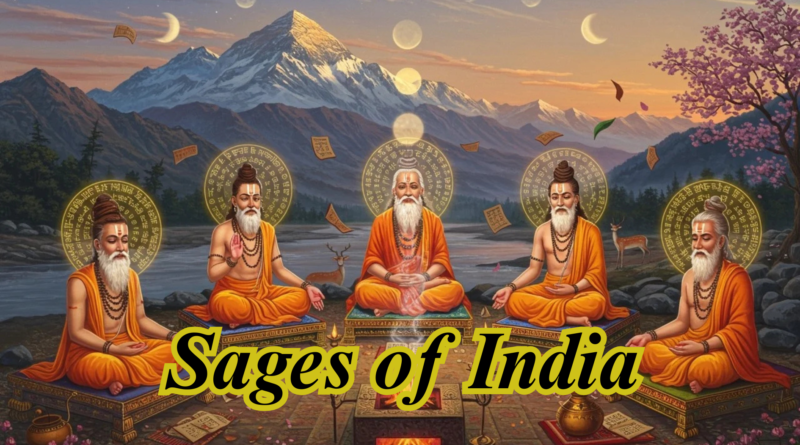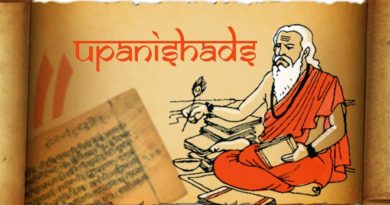Sages of India
India, often called the land of sages and spiritual wisdom, has been home to countless revered rishis (sages) who have shaped the nation’s spiritual, philosophical, and cultural legacy. These sages were not only philosophers and seers but also scientists, healers, poets, and teachers. Their insights formed the foundations of Hinduism, Buddhism, Jainism, and other spiritual paths that originated in the Indian subcontinent. Many of their teachings are preserved in ancient texts like the Vedas, Upanishads, Puranas, and epics such as the Mahabharata and Ramayana.
Among the most famous sages of ancient India is Sage Vyasa, the author of the Mahabharata and a key figure in compiling the Vedas. Known as Veda Vyasa, he is credited with categorizing the four Vedas—Rigveda, Samaveda, Yajurveda, and Atharvaveda—and composing the Brahma Sutras and the Bhagavata Purana. Vyasa’s legacy continues to influence Indian philosophy, with his writings deeply embedded in the foundation of Vedantic thought and spiritual inquiry.
Another significant figure is Sage Valmiki, the legendary author of the epic Ramayana. Once a highway robber named Ratnakara, he transformed into a sage through deep penance and guidance from Narada. Valmiki’s Ramayana not only narrates the story of Lord Rama but also conveys profound moral and spiritual lessons. His life is a testimony to the power of inner change and redemption, making him a symbol of transformation through devotion and wisdom.
Sage Patanjali, the compiler of the Yoga Sutras, holds a pivotal place in Indian philosophy, particularly in the practice of yoga. Patanjali’s teachings laid out the eightfold path (Ashtanga Yoga), which includes ethical conduct, breath control, meditation, and self-realization. His systematic approach to yoga made it a practical and philosophical discipline that continues to be followed globally. Patanjali is also credited with works on Sanskrit grammar and Ayurveda, showcasing his multi-disciplinary genius.
Sage Gautama, the founder of the Nyaya school of philosophy, introduced logical reasoning and debate as tools to attain true knowledge. His Nyaya Sutras focused on epistemology and logic, laying down principles of inference, perception, and valid reasoning. His teachings played a major role in the development of classical Indian logic, influencing both Hindu and Buddhist scholars. This rational approach to spiritual understanding became an essential element of ancient Indian intellectual tradition.
Lastly, Sage Yajnavalkya, a towering figure in the Brihadaranyaka Upanishad, was known for his profound metaphysical insights. He introduced the concept of the Self (Atman) as eternal and distinct from the physical body and mind. His dialogues, especially with the wise Queen Gargi and his wife Maitreyi, remain some of the most celebrated discourses in Indian philosophy. Through them, Yajnavalkya explored the nature of consciousness, the universe, and liberation (moksha), leaving an enduring impact on Vedantic thought.




